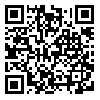Volume 3, Issue 181 (8-2024)
J Except Educ 1403, __(181): 88-88 |
Back to browse issues page
Download citation:
BibTeX | RIS | EndNote | Medlars | ProCite | Reference Manager | RefWorks
Send citation to:



BibTeX | RIS | EndNote | Medlars | ProCite | Reference Manager | RefWorks
Send citation to:
Jalil-Abkenar S S. Leisure time programs for people with intellectual disability:
necessity, theoretical foundations, classification, priority and
applications. J Except Educ 2024; 3 (181) : 1
URL: http://exceptionaleducation.ir/article-1-2598-en.html
URL: http://exceptionaleducation.ir/article-1-2598-en.html
Farhangian University , s.jalil-abkenar@cfu.ac.ir
Abstract: (1376 Views)
Abstract
Background and Aim: Leisure time for children and adolescents with intellectual disability has different
dimensions and is of particular importance. Leisure time is a subset of adaptive behaviors and is defined
as the time spent in favorite activities and recreations that are created by the individual or others and
includes his personal preferences, options and interests. This research was conducted with the aim
of investigating leisure time programs for people with mental disability, emphasizing the necessity
of programs, the theoretical foundations of each program, classification of leisure and fun activities,
prioritization of activities in line with the development of leisure time programs, and the applications of
leisure time programs.
Method: The method of the present research was descriptive and narrative review type. Articles and
books available in reliable scientific databases such as Elsevier, PubMed, Springer, Science Direct and
Google Scholar from 2002 to 2024 have been used to collect information.
Conclusion: Active participation in leisure programs strengthens self-confidence, mental vitality and
sensory-motor skills of children and adolescents with intellectual disability and reduces their challenging
behaviors. In general, leisure time components include fun games, walking, gardening, participation in
family events, participation in religious activities, participation in associations and clubs, participation in
sports activities, academic training, and travel. There are many examples of fun activities for the leisure
time of people with intellectual disability, which are usually divided into activities in organized groups,
activities in informal groups, and informal individual activities. Children and adolescents with intellectual
disability learn to make more rational decisions, think creatively and critically, and increase their sense of
responsibility through the training of the leisure program.
Background and Aim: Leisure time for children and adolescents with intellectual disability has different
dimensions and is of particular importance. Leisure time is a subset of adaptive behaviors and is defined
as the time spent in favorite activities and recreations that are created by the individual or others and
includes his personal preferences, options and interests. This research was conducted with the aim
of investigating leisure time programs for people with mental disability, emphasizing the necessity
of programs, the theoretical foundations of each program, classification of leisure and fun activities,
prioritization of activities in line with the development of leisure time programs, and the applications of
leisure time programs.
Method: The method of the present research was descriptive and narrative review type. Articles and
books available in reliable scientific databases such as Elsevier, PubMed, Springer, Science Direct and
Google Scholar from 2002 to 2024 have been used to collect information.
Conclusion: Active participation in leisure programs strengthens self-confidence, mental vitality and
sensory-motor skills of children and adolescents with intellectual disability and reduces their challenging
behaviors. In general, leisure time components include fun games, walking, gardening, participation in
family events, participation in religious activities, participation in associations and clubs, participation in
sports activities, academic training, and travel. There are many examples of fun activities for the leisure
time of people with intellectual disability, which are usually divided into activities in organized groups,
activities in informal groups, and informal individual activities. Children and adolescents with intellectual
disability learn to make more rational decisions, think creatively and critically, and increase their sense of
responsibility through the training of the leisure program.
Article number: 1
Type of Study: Review Article |
Subject:
Mental Retarded
Received: 2023/Apr/Sun | Revised: 2024/Sep/Sun | Accepted: 2024/Jul/Sun | Published: 2024/Sep/Sun | ePublished: 2024/Sep/Sun
Received: 2023/Apr/Sun | Revised: 2024/Sep/Sun | Accepted: 2024/Jul/Sun | Published: 2024/Sep/Sun | ePublished: 2024/Sep/Sun
Send email to the article author
| Rights and permissions | |
 |
This work is licensed under a Creative Commons Attribution-NonCommercial 4.0 International License. |




